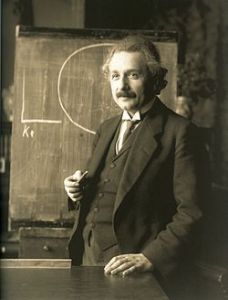 Over the years I have had the opportunity to work with several professors who teach business ethics. I have taught at a university where a program was developed to teach ethical reasoning to all university students. I have co-written a peer reviewed journal article on ethical issues associated with online marketing. Today, at my university have a veteran faculty member who does an outstanding job of engaging business students in the ethical issues of our day. Yet, I continue to be plagued by the inherent inconsistencies between pedagogical intent and actual student learning outcomes in the teaching of ethics. I would like to share two specific stories which highlight my point.
Over the years I have had the opportunity to work with several professors who teach business ethics. I have taught at a university where a program was developed to teach ethical reasoning to all university students. I have co-written a peer reviewed journal article on ethical issues associated with online marketing. Today, at my university have a veteran faculty member who does an outstanding job of engaging business students in the ethical issues of our day. Yet, I continue to be plagued by the inherent inconsistencies between pedagogical intent and actual student learning outcomes in the teaching of ethics. I would like to share two specific stories which highlight my point.
Story One: “Stealing from the Soda Vending Machine”
Several years ago I was co-teaching a leadership class with a fellow faculty member. In the class, he motivated the importance of teaching ethics by sharing a story about students stealing soda cans from a university vending machine. Specifically, he severely criticized the ethical behavior of students for taking soda cans from a soda machine after the machine dispensed several cans after a student only paid for one can. After class, I questioned the professor by saying the ethics of the situation could depend on the situation that led to the vending machine dispensing the cans (i.e. Did the machine sometimes take money and not return any cans? or Had students contacted the owner of the machine and received an unsatisfactory reply?). From the point of the view of the professor, it was simply wrong to ‘steal’ a can of soda and the students were in the wrong.
I was not satisfied with the professor’s reply. What did I do? I googled “vending machine ethics” and found a wonderful lesson in ethics from Rabbi Tzvi Shpitz. He tells a wonderful tale of ethics, based on Jewish law, that describes the process by which the vending machine customer should evaluate the situation and respond. As you read the Rabbi’s response, you will see that the response is not as easy as “right” and “wrong”. See: Hilchos Choshen Mishpat, Volume II, Number 4: Money Extracted From A Vending Machine.
This episode left me puzzled by the business professor’s approach to ethics and his apparent unwillingness to examine the complexity of an interesting ethical dilemma.
Story Two: “The Ethics of Uber”
At a recent conference for academic deans, a distinguished professor of business ethics from a major university made a presentation on the importance of teaching ethics in the business curriculum. She immediately motivated her discussion by launching into a diatribe on the unethical behavior of Uber. More specifically, she unequivocally stated that Uber was unethical for circumventing taxi cab laws and for treating their employees as contract employees. After her presentation was over, I gently discussed the notion that nearly all of the tech giants (Google, Facebook, Twitter, Microsoft, etc.) pushed ethical boundaries and that ultimately there are ethical arguments that can be made pro and con for different business practices and that ultimately these boundaries will be settled in a court of law. The ethics professor would have none of this – Uber was clearly a business engaged in unethical business practices. There was no gray in her position.
I later learned that the business ethics professor specialized in labor law. This troubled me. From my perspective she was viewing an ethical issue solely from a legal perspective and did not consider the issue from different perspectives. See: “Ethically, is Uber a better choice than a taxi?”. Most troubling was that she did this in front of a group of deans – none of whom seemed to be particularly bothered by her analysis.
Conclusion
Why do business ethics professors seem to view complex ethical situations through a black and white lense? This is troubling. Few ethical dilemmas have simple solutions. By presenting these cases as examples of bad behavior as opposed to examples of ethical decision making, they do their students a great disservice. From my perspective, both of these professors ultimately force our students to rely exclusively on the law and they do little to advance the importance of ethical decision making. What are your thoughts?
– from the pen of Dr. Percy Trappe
Read Full Post »
 On the evening of Friday, August 11, 2017 a group of white nationalists marched through the University of Virginia’s grounds. Over the next days a group of white supremacists, white nationalists, neo-Confederates, neo-Nazis, and militias marched through the streets of Charlottesville, Virginia chanting racist and anti-semitic slogans, carrying semi-automatic rifles, swastikas, Confederate battle flags, anti-Muslim and anti-Semitic banners. This “Unite the Right Rally” proved to be a catalyst for a horrific 24 hours that would come to be seen by the nation and world as a day of racial rage, hate, violence and death.
On the evening of Friday, August 11, 2017 a group of white nationalists marched through the University of Virginia’s grounds. Over the next days a group of white supremacists, white nationalists, neo-Confederates, neo-Nazis, and militias marched through the streets of Charlottesville, Virginia chanting racist and anti-semitic slogans, carrying semi-automatic rifles, swastikas, Confederate battle flags, anti-Muslim and anti-Semitic banners. This “Unite the Right Rally” proved to be a catalyst for a horrific 24 hours that would come to be seen by the nation and world as a day of racial rage, hate, violence and death.







